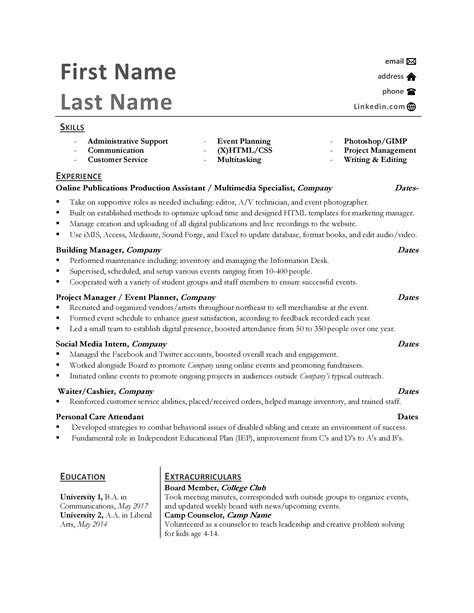Learn how to define, manage, and benefit from multiple roles in your organization. Overcome challenges and develop effective management strategies.Are you someone who has taken on multiple roles within the same company? Whether it’s due to the nature of the job or the size of the organization, wearing multiple hats at work can bring both advantages and challenges. In this blog post, we’ll delve into the concept of holding multiple roles within the same company and explore the benefits and drawbacks of doing so. We’ll also discuss effective strategies for managing and balancing these multiple roles to maximize productivity and success in the workplace. Whether you’re a Jack or Jill of all trades out of necessity or choice, this blog post will provide valuable insights and practical tips for navigating the complexities of juggling multiple roles within the same company. Let’s explore the world of multi-tasking and multi-role playing in the workplace!
Define Multiple Roles
In the professional world, having multiple roles within the same company refers to the situation where an individual is responsible for performing more than one job or function. This could include taking on different responsibilities in different departments or being involved in various projects simultaneously. It is important to note that these roles are usually undertaken within the confines of a single organization, rather than across multiple companies.
Having multiple roles can offer a range of benefits to both employees and employers. For employees, it can provide opportunities for professional growth and skill development. It allows them to gain a broader understanding of the organization and its operations, as well as the chance to expand their experience and expertise in different areas. For employers, having individuals take on multiple roles can contribute to increased efficiency and flexibility, as well as a more complete utilization of an employee’s skills and knowledge.
However, managing multiple roles can also present challenges. It can lead to a heavier workload and potential burnout for employees if not managed effectively. There may also be issues of prioritization and time management, as individuals try to balance the responsibilities of different roles. Additionally, there could be concerns about role conflict or overlap, as well as the potential for blurred lines of authority and accountability.
Advantages of Multiple Roles
The advantages of holding multiple roles within the same company are plentiful.
Firstly, taking on multiple roles can provide employees with a diverse skill set. When an individual is responsible for various tasks and departments, they gain valuable experience in different areas of the business. This not only makes them a more versatile and valuable asset to the company, but it also allows for personal and professional growth.
Secondly, holding multiple roles can lead to increased job satisfaction. Employees who are given the opportunity to wear different hats within the organization often feel more engaged and fulfilled in their work. This variety can help to combat feelings of monotony and boredom, leading to a more positive work environment. Additionally, the ability to make a larger impact on the company as a whole can be extremely rewarding.
Lastly, from an organizational standpoint, having employees who can fulfill multiple functions can lead to improved efficiency and cost savings. Instead of hiring multiple individuals to manage different tasks, one employee with a diverse skill set can handle various responsibilities. This not only reduces the need for additional recruitment and training, but it also ensures a smoother flow of communication and collaboration within the company.
Challenges of Multiple Roles
When it comes to juggling multiple roles within the same company, there are several challenges that one may encounter. One of the main challenges is the struggle to balance time and prioritize tasks. With responsibilities spread across various roles, it can be difficult to manage time effectively and ensure that each role receives the attention it deserves.
Another challenge of handling multiple roles is the potential for role conflict. Different roles may require different skills, and it can be challenging to switch between these skill sets seamlessly. This can lead to confusion and stress, as individuals may feel pulled in multiple directions and struggle to maintain a sense of coherence in their work.
Furthermore, employee burnout is a significant challenge when it comes to managing multiple roles within a company. The added pressure of balancing multiple responsibilities can take a toll on an individual’s mental and emotional well-being, leading to decreased productivity and overall job satisfaction.
Effective Management of Multiple Roles
Effective Management of Multiple Roles
When working in a company, it’s not uncommon to take on multiple roles. This can happen for a variety of reasons, such as a company downsizing, a need for specialized skills, or simply a lack of resources to hire additional employees. While taking on multiple roles can be beneficial in terms of gaining diverse experience and skills, it can also be overwhelming if not managed effectively.
One of the key aspects of effective management of multiple roles is organization. It’s important to prioritize tasks and create a schedule to ensure that each role receives the necessary attention. This may involve setting specific time blocks for each role, or delegating certain tasks to other team members. Good time management skills are essential in order to avoid feeling overwhelmed and ensure that everything gets done in a timely manner.
Another important factor in managing multiple roles is communication. It’s crucial to keep open lines of communication with colleagues and supervisors, so that everyone is aware of which roles you are handling and what is expected of you in each capacity. Additionally, being transparent about your workload can help to prevent misunderstandings and ensure that no role gets neglected.
